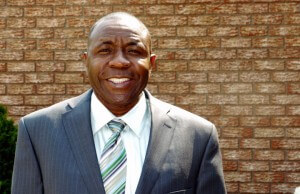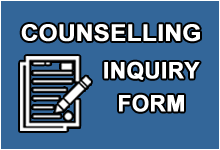How to Get the Most Out of Counselling
By Michael Hart, M.A, C.C.C.
Seven Tips on How to Get the Most Out of Counselling
 Many of us, before experiencing counselling with a professional, base our expectations on what we have seen on television. In these depictions, the therapist usually does or says something profound and clients are miraculously delivered from their problems after one session. Many people are disappointed when they discover that it is not like this in real life. The truth is, there is no magical procedure that a therapist can use; therapy is hard work, and success to a large degree, depends on the client. The client is the one who has the answers and good therapists will act as guides that will help clients discover the answers to their problems. Carl Rogers, one of the pre-eminent psychologists of the 20th century clarified the role played by good therapists when he said “”In my early professional years I was asking the question: How can I treat, or cure, or change this person? Now I would phrase the question in this way: How can I provide a relationship which this person may use for his own personal growth?” With this idea of a quick fix out of the way, this article will outline seven practical tips that will help you to get the most out of your counselling sessions.
Many of us, before experiencing counselling with a professional, base our expectations on what we have seen on television. In these depictions, the therapist usually does or says something profound and clients are miraculously delivered from their problems after one session. Many people are disappointed when they discover that it is not like this in real life. The truth is, there is no magical procedure that a therapist can use; therapy is hard work, and success to a large degree, depends on the client. The client is the one who has the answers and good therapists will act as guides that will help clients discover the answers to their problems. Carl Rogers, one of the pre-eminent psychologists of the 20th century clarified the role played by good therapists when he said “”In my early professional years I was asking the question: How can I treat, or cure, or change this person? Now I would phrase the question in this way: How can I provide a relationship which this person may use for his own personal growth?” With this idea of a quick fix out of the way, this article will outline seven practical tips that will help you to get the most out of your counselling sessions.
Tip # 1: Find a competent counsellor
The first tip is to select a therapist who is qualified to do the job. Unfortunately, there is no law in Ontario that governs who can use the title ‘therapist,’ ‘psychotherapist,’ or ‘counsellor.’ As a result, anyone can advertise using these titles without having the proper qualifications for the job. In order to determine if your therapist is qualified you should ask if he or she is a certified member of the Canadian Counselling and Psychotherapy Association (CCPA). CCPA has very strict requirements as to who can become a certified member. To become a certified member a person must have at least a Masters degree related to Counselling and must pledge to abide by the ethics of the association. Certified counsellors are allowed to use the letters CCC (Certified Canadian Counsellor) after their name. In addition, CCPA can remove a counsellor from their listing if he or she violates the Code of Ethics of the association. Another reputable association that has very high standards for therapists is the American Association for Marriage and Family Therapy (AAMFT).
CCPA also offers the designation of “professional member” to people who have a university degree or college diploma in counselling. While these counsellors can call themselves professional counsellors they have not done the extensive training of someone who holds a masters degree in counselling and is not allowed to use the designation CCC. When checking your therapist’s credentials, make sure that he or she is a certified member of one of these associations and not merely a student member or a professional member.
Tip # 2: Plan ahead for the appointment
Prepare how you are going to communicate the essential points of your situation to your therapist. Remember that even though your counsellor might be highly trained, the success of the counselling process, to a large extent, depends on what you reveal in the session. If you arrive prepared to discuss your issue, you may be able to communicate the salient points of your situation in five minutes instead of twenty. It is is quite normal to want to build rapport and trust with your therapist before getting into highly personal or traumatic experiences. However, planning ahead can save time in most cases.
Tip # 3: Arrive at least 10 minutes early for your first session
Professional Counsellors will have paper work for you to complete before the session begins; this may take five to ten minutes to complete. If you arrive just on time for the session, 10 minutes of your allotted time could be used up completing paperwork. At the time when the appointment is being booked, it is a good idea to ask if the appointment time includes the time needed to fill out the forms. If not, arrange to arrive earlier to do the necessary paperwork.
Arriving early also helps to you feel more relaxed and less anxious going into your session. In a more relaxed state you are able to think more clearly and get your points across more succinctly
Tip # 4: Be on time for your sessions
Whereas above, we talked about the importance of being five to ten minutes early for the first session, it is also important to be on time for future sessions. Being on time is important for two key reasons: Firstly, most counsellors plan 40 to 50 minutes for each session and will most likely have another client coming in right after your session. If you are 10 minutes late, you are missing as much as a quarter of your session. Secondly, being late has its psychological costs. Some clients, when they are late, are not in a good state psychologically. If you are in an emotionally disturbed state because of being late, your counsellor may need to utilize relaxation techniques to get you relaxed before working on your therapeutic goals. Other clients feel guilty about being late; and the emotion of guilt can detract from their awareness of other emotions that are pertinent to the issues they came in to discuss.
Tip # 5: Be clear about your goals
It is very important for you to be able to verbalize to your counsellor what you plan to achieve through counselling. Examples of clear goals are: to forgive a spouse; to get over a particular fear, or to stop feeling depressed. Most counsellors will ask you to tell them your goals. This is the counsellor’s way of knowing what issues are important to you and where to focus her attention initially. I say initially, because it is good to be aware that as the counselling sessions progress, other issues of importance may be uncovered that will need to be focused on. However, having clear goals from the very beginning serves two main purposes: 1. Goals help the sessions to be focused towards your primary objectives. 2. With goals you can look back after a few session and more clearly evaluate your progress in light of your goals. 3. Goals will help you and your therapist know when to terminate the counselling process.
Tip # 6: Do your homework
Some counsellors may give you tasks to do at home. Such tasks may include, writing a letter, writing out your thoughts about a particular issue, or discussing an issue with someone. These tasks may seem very trivial but they are very important in taking you closer towards your goals. If you do’t do assigned homework, your goals may take much longer to be achieved. If for some reason you are uncomfortable doing an assignment, feel free to tell your therapist; this will give her insight into your stage of progress.
Where homework is concerned, don’t worry about grammatical errors. Your therapist will not be interested in your grammar but rather the content of what you write. So don’t delay handing in your homework because it has not been proof-read.
Also, it is never a good idea to miss your session because you haven’t completed your homework. Your therapist is not like a school teacher and there is no strict deadlines for doing homework. Also, a good therapist will never make you feel uncomfortable for not doing homework.
Tip # 7: Be truthful about your situation
A counsellor can only help you to the extent that she has the correct information about your situation. If, because of embarrassment, fear, or other psychological barriers, you paint a better picture of your situation than it really is, the counsellor will be limited in what she can do. For example, clients who have serious issues in their marital relationship may be reluctant to speak about these issues because doing so make them feel like a failure. These feelings are understandable and quite normal. However, if after several sessions you realize you haven’t given a true picture of your situation, it may be necessary for you to reassess the effect that withholding information is having on your therapeutic goals. If you can’t speak about deeply painful things in your relationship, it is more beneficial to say to your therapist, “There are some things I am not ready to talk about as yet, ” than to lead her to mistakenly believe she have full information. A skilled therapist will be compassionate towards you and will know how to help you overcome barriers that are blocking your ability to be transparent.
Keep these seven tips in mind and your counselling process will be much more rewarding . Should you have any question regarding the content of this article or any other issue, please do not hesitate to contact us at Elim Counselling Services.



















